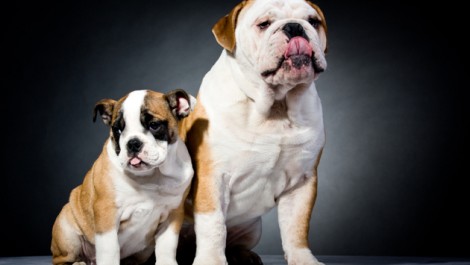Man’s best friend can become man’s worst enemy if you pick a dog breed that doesn’t suit your lifestyle, personality and environment. While there is no way to guarantee that a certain breed will be a perfect fit for you, there are some basic things to take into consideration when picking out a canine companion. Doing a little research and examining your lifestyle will help you make a good decision rather than acting on impulse when an adorable little puppy is pawing at you and giving you the “take me home” eyes.
After you’ve decided that you want a pup and will be able to take care of it on a long-term basis (most dogs live to be at least 12 years old), you can start thinking about what breeds are right for you. Ask yourself some basic questions to get the process rolling. Do you want to adopt a rescue dog, or work with a breeder? Would a small dog work best for your living environment, or could you accommodate a larger dog? Are loyalty and obedience top priority, or do you want an independent pup? Make a list of the qualities you would want in a dog to give you a better idea of where to begin.
When you’ve come up with your list, you’ll be ready to start looking at specific breeds. Use these pointers to help you select which dog breed is right for you.
Breed Personality
Two of the biggest deciding factors in choosing a dog breed are personality and temperament. Some dogs are independent and aloof, while others make excellent, attentive family pets. Choose a dog that has a personality and temperament similar to yours for the best match. If you want a dog that does his own thing without much fuss, choose a breed like the Airdale Terrier, Basenji, Chow Chow, French Bulldog, or Ibizan Hound.
However, if you want a dog that does best when given a lot of attention, pick a breed like the Australian Shepard, Cavalier King Charles Spaniel, Border Collie, German Shorthaired Pointer or Jack Russell Terrier. Remember that when you’re researching breed information, what’s presented is typical of that breed and not a definite representation of each dog in that breed. For example, not all Pit Bulls are aggressive and not all Golden Retrievers are docile.
Lifestyle and Environment
A dog should enjoy many of the same lifestyle activities that you do to fit into your life. Not all dogs are hikers, water enthusiasts or movie watching buddies. If you love spending time outdoors, opt for an adventurous, loyal and alert pup that does well outdoors like the Rottweiler, Norwegian Elkhound, Siberian Husky, Samoyed, Bernese Mountain Dog, Keeshond, Australian Cattle Dog, German Shepard or American Foxhound. If you’re more of a stay-at-home lounger, pick a dog that likes to relax around the house as well like the Bolognese, Greyhound, Pug, Bulldog, or Bassett Hound or Havenese.
You should also consider your living environment and how well certain breeds will do in your day-to-day life. Apartment dwellers should be especially careful in selecting a breed that doesn’t need ample space, is fairly quiet (so you don’t piss off your neighbors with incessant barking) and can do without constant time outdoors. Breeds that are suggested for apartment living include the Greyhound, Yorkshire Terrier, Boston Terrier, French Bulldog and the Maltese. Size doesn’t always matter most when you’re thinking about a good dog for apartment living, some bigger dogs are expert loafers and will do just fine in a smaller space as long as their basic exercise needs are met.
Grooming and Maintenance
Just like humans, some dogs are high maintenance. If you prefer a dog that can get down and dirty, steer clear of some higher maintenance dogs. Dog breeds that are known to be relatively low maintenance and not require much in terms of grooming include the Puggle, Welsh Corgi, Chihuahua, Beagle, Boxer, Dachshund, Great Dane and Aspin.
On the other hand, some dog owners love to pamper their dogs with frequent trips to the groomer, lots of attention, and fashionable canine outfits. Dog breeds that require a greater amount of maintenance include the Shar Pei, Goldendoodle, Poodle, Portuguese Water Dog, Newfoundland and Irish Setter. You might also want to research dog breeds that are known to have medical issues or hereditary problems if you are concerned about having a dog with poor health later in life or issues known to affect the breed such as skin problems, illnesses and joint issues.
Training and Obedience
One of the main things first time dog owners look for in a breed is ease of training and obedience. Some dog breeds are not recommended for first time dog owners because they are difficult to train and don’t display aspects of obedience and loyalty that are often sought out. Dog breeds that are not recommended for first time dog owners include the Pekingese, Bloodhound, Borzoi, Chow Chow, Basenji, Bulldog, Afghan Hound and Mastiff.
Dogs that are easy to train and obedient make much better pets for first time dog owners. The breeds that are fun to work with and will easily pick up commands include the Australian Cattle Dog, German Shepard, Golden Retriever, Labrador Retriever, Papillon, Rottweiler, Belgian Malinois, Brittany and Collie.
Picking the perfect dog for you will likely come down to a combination of the factors listed above. Take your time choosing the right dog breed for you, as your pup will be a companion for years to come.




